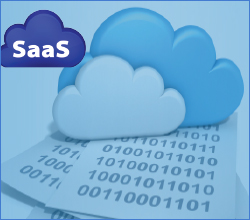
How to Prepare and Survive an EPA Audit
 Joe Keenan
Joe Keenan
 60 Mins
60 Mins
Product Id: 706857
In this training program attendees will learn the key elements needed to develop a proactive Regulatory Compliance Written Program. After this webinar, you will have confidence in facing the next EPA regulatory compliance audit that comes your way.

Excel Spreadsheets; Ensuring Data Integrity and 21 CFR Part 11 Compliance
 David Nettleton
David Nettleton
 75 min
75 min
Product Id: 701582
Learn how to use Microsoft Excel spreadsheets for GXP data to ensure compliance with 21 CFR Part 11 and reduce validation cost and time.

Stability Studies and Estimating Shelf Life
 Steven Wachs
Steven Wachs
 90 Mins
90 Mins
Product Id: 706026
The webinar will provide useful methods and techniques for conducting a stability study and analyzing the resulting data for the purpose of estimating shelf life. Participants should be able to immediately apply the methods presented. Also, the interpretation and communication of results will be stressed and illustrated in several examples.

Hypothesis Testing, P-values and Inference: When Thinking like a Statistician Makes Sense
 Elaine Eisenbeisz
Elaine Eisenbeisz
 120 Mins
120 Mins
Product Id: 703552
This clinical research webinar will explore the reasoning that formulates null hypotheses and turns researchers’ hair gray. Attendees will learn the why and how of the scientific method and how to view the world with a statistician’s eyes. Also attendees will learn the possibilities and limitations of research questions and hypothesis development, how to interpret statistical findings with p-values, effect sizes, and confidence intervals.

Fair Lending in 2025: new regulations, examinations and enforcement
 Justin Muscolino
Justin Muscolino
 60 Mins
60 Mins
Product Id: 707017
Are you as knowledgeable in the Fair Lending regulations? Do you know how they pertain to your role and responsibilities? Has your compliance program changed with the changes in regulations? During this webinar we will go through each of the regulations that fall under Fair Lending and take look at the latest developments in regulatory compliance.

Ethylene Oxide and Gamma Radiation Sterilization Validations
 John E Lincoln
John E Lincoln
 90 Mins
90 Mins
Product Id: 707018
Gamma and EO Sterilization verification and validations under the U.S. FDA and EU's EMA / MDR requirements

Current Trends in FDA Inspections
 Michael Ferrante
Michael Ferrante
 90 Mins
90 Mins
Product Id: 703485
This webinar will focus on the current trends in FDA inspections and guidelines that can be implemented to ensure compliance with the latest quality and regulatory requirements. Attendees will learn how to prepare for an FDA inspection to avoid Warning Letters.

Preparing for Pre-Approval Inspections
 Joy McElroy
Joy McElroy
 90 Mins
90 Mins
Product Id: 707019
A pre-approval inspection (PAI) is performed to provide the Food and Drug Administration (FDA) assurances that a manufacturing site named in a drug application is capable of consistently manufacturing a safe drug product, and that the submitted data is accurate and complete against what was filed in their application. This training will provide guidance on when the FDA performs pre-approval inspections. It will describe how to prepare for a PAI, and the outcomes of pre-approval inspections.

Conducting an ACH Risk Assessment and Developing an Effective Risk Management Program
 Donna K Olheiser
Donna K Olheiser
 90 Min
90 Min
Product Id: 706995
According to the Nacha Operating Rules, financial institutions are required to assess and manage all ACH risks, which includes developing a Risk Management program. Most ACH risk can be mitigated through proper due diligence for all originating customers (KYC) and strict adherence to ACH origination and credit policies, which includes monitoring ACH activity.

Ethylene Oxide (EO) Sterilization Basics for R&D Engineers
 Gerry O Dell
Gerry O Dell
 90 Mins
90 Mins
Product Id: 701272
This Sterilization training will provide valuable information to companies that design products for terminal sterilization with ethylene oxide.

Clinical Trial Systems: The Trial Master File (TMF) and Electronic Trial Master File (eTMF)
 Carolyn Troiano
Carolyn Troiano
 90 Min
90 Min
Product Id: 706938
Companies engaged in the conduct of human clinical trials must adhere to specific government regulatory requirements. Certain documents, content and images related to a clinical trial must be stored and maintained, and depending on the regulatory jurisdiction, this body of information may be stored in a trial master file (TMF). All of the data and documents supporting the planning, conduct and evaluation of a clinical trial must be of the highest integrity, which must be maintained through their entire life cycle. Computer System Validation will be discussed as a key methodology for meeting all of these requirements and assuring data/document integrity.

21 CFR Part 11, FDA’s Guidance for Electronic Records and Electronic Signatures
 Carolyn Troiano
Carolyn Troiano
 90 Mins
90 Mins
Product Id: 707014
The Webinar will focus on the importance of ensuring that electronic record/electronic signature (ER/ES) capability built into FDA-regulated computer systems meets compliance with 21 CFR Part 11. This includes development of a company philosophy and approach, and incorporating it into the overall computer system validation program and plans for individual systems that have this capability.

Data Integrity and Privacy: Compliance with 21 CFR Part 11, SaaS/Cloud, EU GDPR
 David Nettleton
David Nettleton
 90 Mins
90 Mins
Product Id: 701687
This 21 CFR Part 11 compliance training will guide you through the requirements of Part 11 and will also explain its 3 primary areas: SOPs, product features and validation (10 step risk based approach).

EPA Tier II Reporting
 Joe Keenan
Joe Keenan
 60 Mins
60 Mins
Product Id: 705125
This training program will enumerate the requirements of the Emergency Planning and Community Right-to-Know Act (EPCRA) as it applies to your organization. It will also help attendees understand the threshold trigger for reporting a hazardous chemical on the Tier II forms and learn how to accurately calculate chemical mixtures as it applies to the Tier II forms. Further, attendees will learn to navigate the complexities of online Tier II reporting.

Process Capability for Normal and Non-Normal Data (Focus: Process Stability, Capability and Cp, Cpk, Pp, Ppk, Cpm)
 Steven Wachs
Steven Wachs
 75 Mins
75 Mins
Product Id: 705020
This webinar discusses methods for estimating process capability for both normal and non-normal data. Methods include estimating the proportion of defective products that may be produced as well as the calculation and use of common process capability indices (e.g. Cpk and Ppk). Process Capability assessments are discussed in the overall context of quality improvement/management.

Mapping a Pharmaceutical Ingredient Bulk Manufacturing Workflow
 Michael Esposito
Michael Esposito
 90 Mins
90 Mins
Product Id: 707020
Mapping and evaluating all the steps in a current pharmaceutical ingredient bulk manufacturing workflow can lead to valuable process improvements. In this webinar, we discuss how this review can be accomplished and the possible benefits that can result.

Managing Microbiological Out of Specification (OOS) and Out of Trend (OOT) Results in Sterile and Non-Sterile Production FDA & ICH Expectations and Guidance
 Barry A Friedman
Barry A Friedman
 90 Mins
90 Mins
Product Id: 706884
The objective of this interactive, live training webinar is to explore the management of OOS practices and suggested avenues to take to minimize deviations, OOT, OOS and CAPA and how to attack these situations should they occur. It is also designed to determine how FDA and ICH regulations and guidances may impact them. It will also reference the new PDA TR 88, “Microbial Data Deviation Investigations in the Pharmaceutical Industry”.

The 6 Most Common Problems in FDA Software Validation and Verification
 David Nettleton
David Nettleton
 120 Mins
120 Mins
Product Id: 705582
This training on FDA software validation and verification will provide you the best practices necessary to ensure that all systems are validated in compliance with FDA regulations.

Conducting Your 2025 Annual ACH Rules Compliance Audit - a Step-by-Step Guide
 Donna K Olheiser
Donna K Olheiser
 90 mins
90 mins
Product Id: 705082
The Nacha Operating Rules and Guidelines require that all participating depository financial institutions (ODFI & RDFI), Third Party Senders (TPS) and Third-Party Service Providers (TPSP) that provide ACH services to the RDFI or ODFI, conduct an annual ACH audit by December 31 of each year (Nacha Operating Rules, Article 1).

Effective Systems for Change Control in the Pharmaceutical Industry
 David L Chesney
David L Chesney
 90 mins
90 mins
Product Id: 705002
This webinar will help you understand GMP requirements for change control from a pharmaceutical manufacturing perspective, the purpose of change control and what types of changes are or are not subject to change control. Participants will learn how to execute and implement a change in a regulated environment.


























